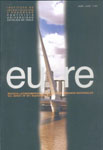The "more privete, less state" equation: who wins and who lose. The case of the Great Buenos Aires public transport service
DOI:
https://doi.org/10.4067/S0250-71612002008400005Keywords:
urban management, mobility, urban policy, economic restructuring, urban transportationAbstract
This article pretends to demostrate, specially about the case of the metropolitan public transport system, how the changes to the state structures, resulting from the new flexible ownership patterns, impact to the detriment of increasing groups of captive users. The mass transport system, now operated solely by private operators, without sufficient regulatory protection, shows the gradual disappearance of public service concept, since weakness state is more receptive to the lobbying power of the concessionaires. With that objective, we present the results of our accessibility departmental measurement, by comparing the amount of public transport service offer with the number of residents and poor levels. The analysis would explain a socio-spatial pattern of higher costs of public transport in areas where the most vulnerable population groups are located due to the lack of profitable markets to be served.Downloads
Published
How to Cite
Issue
Section
License
Copyright (c) 2002 Revista EURE - Revista de Estudios Urbano Regionales

This work is licensed under a Creative Commons Attribution 4.0 International License.
Al momento de aceptar la publicación de sus artículos, los autores deberán formalizar la cesión de derechos de autor a EURE, según las condiciones establecidas por la Revista.
Ésta establece que el autor autoriza a EURE de manera gratuita, exclusiva e ilimitada a reproducir, editar, publicar, distribuir, publicitar, comercializar y traducir el artículo, a cualquier soporte conocido o por conocer y desarrollar.
Del mismo modo, los autores aseguran que el artículo propuesto es original, no publicado y no propuesto para tal fin a otro medio de difusión.


